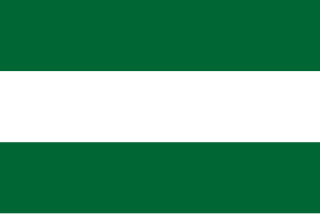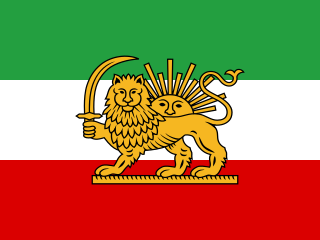
The Durrani Empire, colloquially known as the Afghan Empire, or the Sadozai Kingdom, was an Afghan empire founded by the Durrani tribe of Pashtuns under Ahmad Shah Durrani in 1747, which spanned parts of Central Asia, the Iranian plateau, and the Indian subcontinent. At its peak, it ruled over present-day Afghanistan, much of Pakistan, parts of northeastern and southeastern Iran, eastern Turkmenistan, and northwestern India. Next to the Ottoman Empire, the Durrani Empire is considered to be among the most significant Islamic empire of the second half of the 18th century.

The history of Bangladesh dates back over four millennia to the Chalcolithic period. The region's early history was characterized by a succession of Hindu and Buddhist kingdoms and empires that fought for control over the Bengal region. Islam arrived in the 8th century and gradually became dominant from the early 13th century with the conquests led by Bakhtiyar Khalji and the activities of Sunni missionaries like Shah Jalal. Muslim rulers promoted the spread of Islam by building mosques across the region. From the 14th century onward, Bengal was ruled by the Bengal Sultanate, founded by Fakhruddin Mubarak Shah, who established an individual currency. The Bengal Sultanate expanded under rulers like Shamsuddin Ilyas Shah, leading to economic prosperity and military dominance, with Bengal being referred to by Europeans as the richest country to trade with. The region later became a part of the Mughal Empire, and according to historian C. A. Bayly, it was probably the empire's wealthiest province.

The Kingdom of Nepal was a Hindu kingdom in South Asia, formed in 1768 by the expansion of the Gorkha Kingdom, which lasted until 2008 when the kingdom became the Federal Democratic Republic of Nepal. It was also known as the Gorkha Empire, or sometimes Asal Hindustan. Founded by King Prithvi Narayan Shah, a Gorkha monarch who claimed to be of Thakuri origin from chaubisi, it existed for 240 years until the abolition of the Nepalese monarchy in 2008. During this period, Nepal was formally under the rule of the Shah dynasty, which exercised varying degrees of power during the kingdom's existence.

Mohammad Mosaddegh was an Iranian politician, author, and lawyer who served as the 30th Prime Minister of Iran from 1951 to 1953, elected by the 16th Majlis. He was a member of the Iranian parliament from 1923, and served through a contentious 1952 election into the 17th Iranian Majlis, until his government was overthrown in the 1953 Iran coup aided by the intelligence agencies of the United Kingdom (MI6) and the United States (CIA), led by Kermit Roosevelt Jr. His National Front was suppressed from the 1954 election.

Reza Shah Pahlavi was an Iranian military officer and the founder of the Pahlavi dynasty. As a politician, he previously served as minister of war and prime minister of Qajar Iran and subsequently reigned as Shah of Pahlavi Iran from 1925 until he was forced to abdicate after the Anglo-Soviet invasion of Iran in 1941. He was succeeded by his eldest son, Mohammad Reza Shah. A moderniser, Reza Shah clashed with the Shia clergy and introduced social, economic, and political reforms during his reign, ultimately laying the foundations of the modern Iranian state. Therefore, he is regarded by many as the founder of modern Iran.

The Iranian revolution, also known as the 1979 revolution, or the Islamic revolution of 1979 was a series of events that culminated in the overthrow of the Pahlavi dynasty in 1979. The revolution led to the replacement of the Imperial State of Iran by the present-day Islamic Republic of Iran, as the monarchical government of Mohammad Reza Pahlavi was superseded by the theocratic Ayatollah Ruhollah Khomeini, a religious cleric who had headed one of the rebel factions. The ousting of Pahlavi, the last Shah of Iran, formally marked the end of Iran's historical monarchy.
The National Front of Iran is an opposition political organization in Iran. It was founded by Mohammad Mosaddegh in 1949, and it is the oldest and arguably the largest pro-democracy group operating inside Iran, despite having never been able to recover the prominence it had in the early 1950s.

The Northern Alliance, officially known as the United National Front for the Salvation of Afghanistan, was a military alliance of groups that operated between early 1992 and 2001 following the dissolution of the Soviet Union. At that time, many non-Pashtun Northerners originally with the Republic of Afghanistan led by Mohammad Najibullah became disaffected with Pashtun Khalqist Afghan Army officers holding control over non-Pashtun militias in the North. Defectors such as Rashid Dostum and Abdul Momim allied with Ahmad Shah Massoud and Ali Mazari forming the Northern Alliance. The alliance's capture of Mazar-i-Sharif and more importantly the supplies kept there crippled the Afghan military and began the end of Najibullah's government. Following the collapse of Najibullah's government the Alliance would fall with a Second Civil War breaking out however following the Islamic Emirate of Afghanistan's (Taliban) takeover of Kabul, The United Front was reassembled.
Shah Commission was a commission of inquiry appointed by Government of India in 1977 to inquire into all the excesses committed in the Indian Emergency. It was headed by Justice J.C. Shah, a former chief Justice of India.

Mohammad Reza Pahlavi, commonly referred to in the Western world as Mohammad Reza Shah, or simply the Shah, was the last monarch of Iran (Persia). In 1941 he succeeded his father Reza Shah and ruled the Imperial State of Iran until 1979 when the Iranian Revolution overthrew him, abolished the monarchy and established the Islamic Republic of Iran. In 1967, he took the title Shahanshah, and also held several others, including Aryamehr and Bozorg Arteshtaran. He was the second and last ruling monarch of the Pahlavi dynasty. His vision of the "Great Civilization" led to his leadership over rapid industrial and military modernization, as well as economic and social reforms in Iran.

Parliamentary elections were held in Iran on 13 March 1980, with a second round on 9 May. They were the first elections to the Majlis since the overthrow of the Shah, and were contested to a considerable degree on a party basis.

Parliamentary elections were held in Iran in 1952 to elect the 17th Iranian Majlis.

Parliamentary elections were held in Iran between 30 July and 20 August 1960.

Parliamentary elections were held in Iran in 1961, after the elections the previous year had been annulled by the Shah. The result was a victory for the Party of Nationalists, which won a plurality of the seats.
In 1949 a Constituent Assembly was held in Iran to modify the Persian Constitution of 1906. Shah Mohammad Reza Pahlavi convened the assembly in April; he sought a royal prerogative giving him the right to dismiss the parliament, providing that new elections were held to form a new parliament. He also specified a method for future amendments to the Constitution. The amendments were made in May 1949 by unanimous vote of the Constituent Assembly.

The Guarded Domains of Iran, alternatively the Sublime State of Iran and commonly called Qajar Iran, Qajar Persia or the Qajar Empire, was the Iranian state under the rule of the Qajar dynasty, which was of Turkic origin, specifically from the Qajar tribe, from 1789 to 1925. The Qajar family played a pivotal role in the Unification of Iran (1779–1796), deposing Lotf 'Ali Khan, the last Shah of the Zand dynasty, and re-asserted Iranian sovereignty over large parts of the Caucasus. In 1796, Agha Mohammad Khan Qajar seized Mashhad with ease, putting an end to the Afsharid dynasty. He was formally crowned as Shah after his punitive campaign against Iran's Georgian subjects.

The elections for the sixth Majlis ended on 27 June 1926.

The elections for the eighth Majlis were held in the summer of 1930.

Reza Shah issued a royal decree on 15 August 1932 for the ninth parliamentary elections to be held, and the elections started on the following day. The elections are considered fraudulent and "systematically controlled by the royal court".













